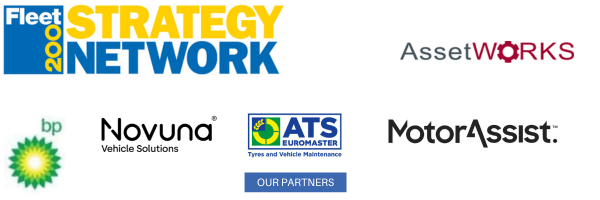More than a third of companies (36%) have introduced salary sacrifice, according to the latest Fleet200 Strategy Network (FSN) survey. Of those, 32% have used it to replace their company car scheme, driven by sustainability, cost and employee benefits.
Salary sacrifice schemes allow employees to ‘sacrifice’ part of their salary in return for a new, low-emission car. Employees have to pay benefit-in-kind tax but there are significant income tax and National Insurance (NI) savings, while their employer benefits from Class 1 NI savings.
Businesses can expect average Class 1 NI savings of £3,000 per electric vehicle (EV), meaning a salary sacrifice fleet of just 35 EVs would generate savings in the region of £100,000, according to salary sacrifice provider Tusker.
The FSN survey follows the British Vehicle Rental and Leasing Association (BVRLA)’s latest Leasing Outlook report which showed that the number of salary sacrifice cars had risen by 34% year-on-year, between Q4 2022 and Q4 2021, to 42,616 vehicles, maintaining 2021’s double-digit growth trajectory.
Public sector fleets are most likely to have introduced salary sacrifice – 56% of respondents versus 31% of private companies – and, while smaller companies are starting to consider this funding option, it is still the bigger businesses which have taken the plunge first.
Almost half of companies running more than 100 vehicles have introduced sal/sac compared to just 19% with up to 100 vehicles.
However, these smaller companies are more likely to use sal/sac as a replacement for a company car scheme – half have done this compared to 37% of companies with 101-500 vehicles and just 9% of fleets with more than 500 vehicles.
Salary sacrifice is a “no-brainer”
Construction and property services company Willmott Dixon switched its funding policy from a standard three-year operating lease to a salary sacrifice scheme in 2021 as part of its drive to achieve net zero carbon emissions (without offsetting) by 2030.
However, the most popular reason for introducing a salary sacrifice scheme is as an employee benefit offered to all staff (subject to a minimum salary threshold), running alongside the traditional company car scheme.
Suez recently launched a salary sacrifice scheme to widen the accessibility of vehicles to employees that might not have been eligible for its company car scheme.
Speaking during the recent Fleet News salary sacrifice webinar, sponsored by Tusker, Michelle Sutton, head of compensation and reward at Suez, described salary sacrifice as a “no-brainer” as it helps Suez with its sustainability goals and gives drivers the certainty of a set monthly fee.
The scheme mirrors Suez’ company car scheme but with the added benefit that drivers can choose a hybrid vehicle not just a full EV.
Similarly, Scottish Water, which has an EV-only job need company car scheme, decided to launch a salary sacrifice scheme alongside it last year to give the rest of the business the opportunity to have an electric car.
Key to the scheme’s uptake has been giving employees the chance to test drive vehicles, according to webinar panellist Holly McPhee, EV project manager at Scottish Water.
Common salary sacrifice misconceptions
Paul Hollick, chairman of the Association of Fleet Professionals (AFP), who also took part in the salary sacrifice webinar, said that many people don’t appreciate that salary sacrifice is essentially “contract hire for all your employees”.
“It’s a contract hire mechanism so that comes with inherent risks that need to be coordinated around minimum wage, sickness, paternity, maternity cover, leavers, etc,” he said.
“That’s why, from an AFP perspective, we’ve always advised that really you should be using a specialist in the field to make sure you're setting the schemes up correctly.”
Chris Connors, head of facilities and fleet at Vistry Group, added: “The provider is going to be your partner so spend time researching and understanding them, how you’re going to work with them and manage the eventualities.”
He also advised fleets to “over-communicate” with employees about what they’re signing up to.
Provided risks are mitigated, Hollick believes there are no downsides to salary sacrifice.
“If you speak to finance people in particular salary sacrifice schemes are almost too good to be true,” he said. “Sometimes for the drivers it (seems) too good to be true as well,” he said.
“Everyone is always looking out for what the catch is, when there isn’t one.
“Fleets that don’t have a salary sacrifice scheme should have one - they’re nuts not to.”




















Login to comment
Comments
No comments have been made yet.